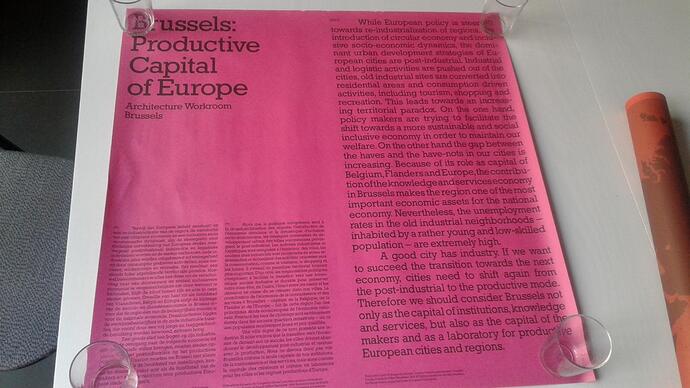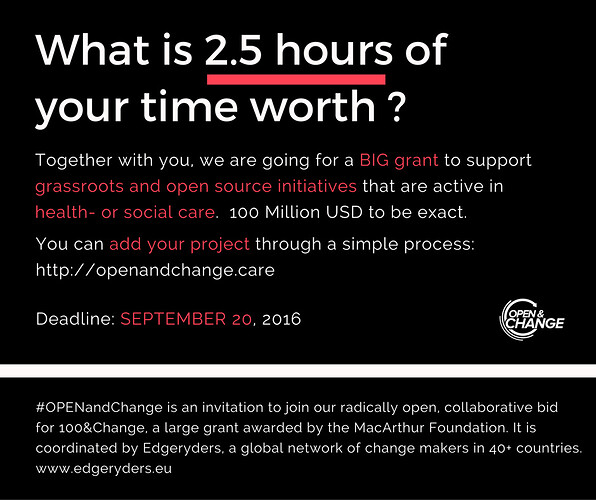Hello everyone
as the workshops in other cities are happening very soon, I wanted to share a couple of thoughts about the event we just held in Greece. I’ll try to be brief.
1. Super late organization on our side - I and Pavlos prepared the methodology a bit late, especially given that some of the potential participants were curious about the details program. As a result, we were not able to explain what exactly will be done, and it might have been one of the reasons why not many people showed up. Hopefully low participation won’t be the case in Berlin and Brussels, where events will be delivered by community members. One of the mistakes was merely renting a space and calling for catering. I think community behind is super important to make it a success, even if it the community itself might attract only some of potential partners.
-
We had only 12 participants (not even at the same time, they came and went) during the whole day, which is extremely poor for a city as big as Thessaloniki. Not sure why is that - the minimum we set was 20. And all that despite having employed people on the ground.
-
The outline of the workshop I have drafted:
-
Introduction of Opencare, Openandchange and Edgeryders (done by me)
-
Introduction to stories of care we collected - they were presented on the wall in form of short texts, and I was there to discuss them in more details whenever someone was interested
-
Introduction of participants
-
Mapping the status quo (world cafe with collection of ideas on the walls)
Imagine the care system in Greece in 10 years
-
World Cafe - an exercise in which participants could express their ideas for improvements and changes in the system
-
Transition framing and how to do the personal projects represented at the workshop fit the transition
-
Interviews and discussion (I have made one interview right after the workshop which will be published soon.
It was more than enough to fill 8 hours.
-
Summary - very broad and generic, which is a warning to all of us. If we keep the workshop on a very theoretical level, we will end up with a summary that could basically fit any of the workshops about care. We need to prepare texts that have a lot of substance and lead a discussion that is deeply grounded. Still, from my discussions with some of the participants and observations I had a feeling they were very engaged and passionate about the meeting, and OPENandchange.
-
I couldn’t engage a lot, only one person was a foreigner who didn’t speak Greek besides me. I am truly sorry for that, but I felt that shifting the dynamic (the groups kept on using Greek and a friend of the Spanish boy was translating for him most of the time) and imposing a language in which part of the group wasn’t very comfortable would slow down the process. Also as most of the publicity for the event was done in Greek, I think it was fair to stick to Greek.
if anything else needs to be explained, clarified or added - just leave a comment, as usual;)

 . Your result will, in time and not now, be measured in terms of stories collected; until those are in, we do not have the data to even try to assess your work. That does not mean we cannot learn from it, and this is what we are doing here. Yours was the first of the three workshop. We are interested in reusing the experience to help the organisers of the other two,
. Your result will, in time and not now, be measured in terms of stories collected; until those are in, we do not have the data to even try to assess your work. That does not mean we cannot learn from it, and this is what we are doing here. Yours was the first of the three workshop. We are interested in reusing the experience to help the organisers of the other two, 